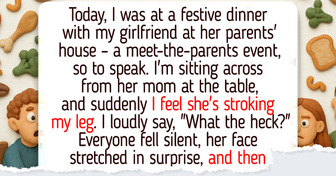Your son should have told you that. Also, did you ask if/when you could visit after the birth? Because it sounds like you assumed you'd be welcome. If you didn't ask you shouldn't be surprised.
I Dropped Everything to See My Grandson — My DIL Kicked Me Out Like I Was Nobody
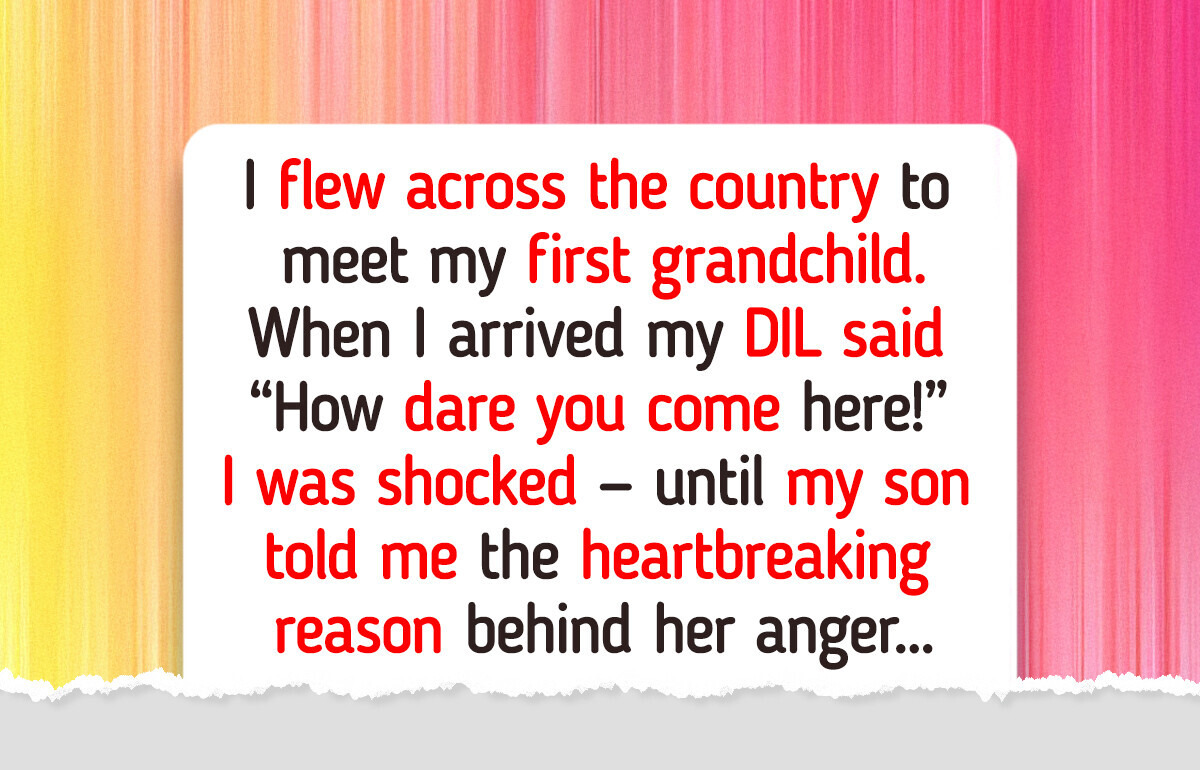
Mother-in-law and daughter-in-law relationships are often complicated. When one of our readers, Klara, shared her story with our editorial team, we thought it was just another case of tension between in-laws. But as we read on, we realized there was something much deeper hiding beneath the surface.
This is her letter:
Dear Bright Side team,
So, my son and his wife recently had their first baby. We live pretty far apart, but when I heard the baby was born, I immediately packed my bags and flew out to be there. I really wanted to support them and meet my grandchild.
When I arrived, my daughter-in-law crossed her arms and snapped, “How dare you come here after you missed the baby shower!” I was caught off guard. Yeah, I missed the baby shower — but only because I couldn’t get time off work. I told her in advance, called to explain, and even sent a gift and flowers.
I thought she’d understand, but she was clearly upset. Later, my son told me the shower was on the anniversary of her mom’s death, and it was a really emotional day for her. She wanted to replace the pain with joy, but my absence apparently brought all that grief back.
I feel terrible now. I didn’t mean to hurt anyone, but I also think I did my best under the circumstances. Should I have done something differently?
Sincerely,
Klara
Our team is so sad to hear this story and we did research to collect psychological advice for you to overcome and figure out this situation.
1. Acknowledge Hurt and Emotions
- Openly recognize the pain your absence may have caused. Validation of your loved one’s feelings, regardless of intent, lays a foundation for repair.
2. Make a Thoughtful and Direct Apology
- A sincere, specific apology—focused on their experience, not your intentions—can help reconciliation.
3. Practice Empathetic Communication
- Use reflective listening and open-ended questions so your loved one feels understood.
4. Respect Grieving and Healing Timelines
- People grieve differently and in their own time. Create space for their process.
5. Reaffirm Your Intentions and Support
- Express ongoing care and a desire to support, and ask how you can be most helpful.
6. Set and Respect Boundaries
- Demonstrate respect for their boundaries, especially when emotions run high.
7. Send a Thoughtful Note or Sympathy Message
- Mark meaningful dates or losses with a card or message showing empathy for their experience.
Family dynamics are rarely simple, especially when joy and grief collide. Klara didn’t intend to hurt anyone — she acted with love, even from afar. But sometimes, pain has a way of reshaping how we receive even the kindest gestures. Discover more articles about family dynamics here.
Comments
So your daughter-in-law wants her child to have no grandmother? Cuz that seems kind of like what she's doing here. Because she's got hurt feelings that you had a job and couldn't drop everything to fly across the country for a baby shower, she's going to keep her child from its only grandparent? Sounds like she needs help.
Related Reads
I Walked Out of My Sister’s Wedding and Now Everyone’s Mad at Me
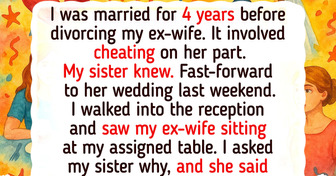
My MIL Imposed Hosting Christmas Dinner on Me — and I’m Fuming
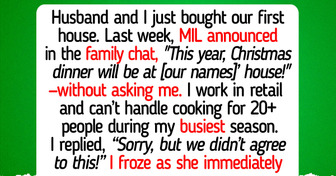
I Chose to Be Childfree, but Suddenly Became a Mom—And Now I’m Trapped
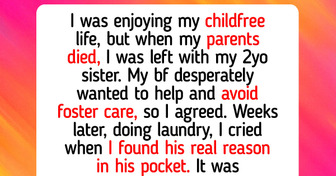
My DIL Refuses to Let Me See My Grandkids Because I’m “Too Poor” for Gifts
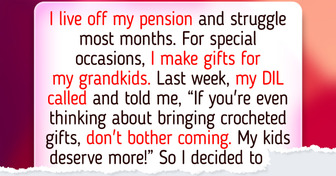
18 Seniors Whose Sharp Wit Proves Humor Only Gets Better With Age
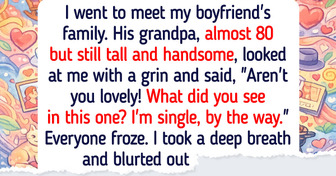
I Refuse to Give My Inheritance to My Stepson—I’m Not His Personal Bank
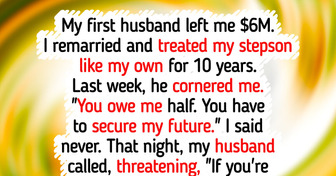
I Was the Invisible Child for Years, So I Made Them Regret Ignoring Me

13 Coworkers From Hell Who Took Workplace Drama to New Levels

11 Times a Stranger’s Kindness Rewrote the Rest of Someone’s Life
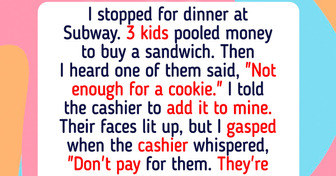
My Stepdaughter Kicked My Dog Out—Now She Calls Me Heartless
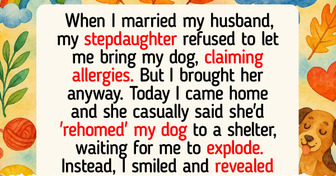
I Was Denied My Vacation Leave Because I Refused to Work Overtime
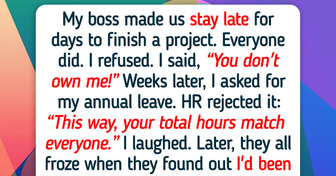
15 Times Meeting the Family Was Funnier Than Any Movie Script
